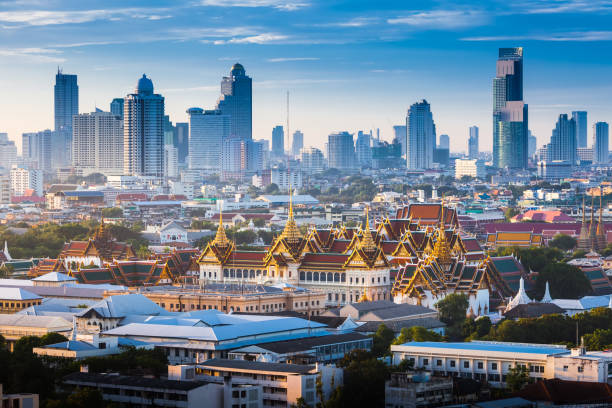The Technological Revolution in Bangkok and the Effect of Smart CitiesThe idea of smart cities has drawn a lot of attention globally in recent years. These cities are distinguished by how they improve the quality of life for their citizens by utilizing cutting-edge technology and data-driven solutions. Thailand’s capital city of Bangkok is no different. Bangkok’s fast-paced urban landscape, lively culture, and expanding populace make smart cities a crucial factor in the city’s technological revolution.
The deployment of an extensive network of sensors and gadgets that gather and analyze data in real-time is one of the major advancements in Bangkok’s transformation into a smart city. These sensors are positioned thoughtfully around the city to enable the monitoring of a number of factors, including trash management, energy usage, traffic movement, and air quality. Policymakers and city planners may make well-informed decisions that maximize resource allocation and boost overall efficiency thanks to this abundance of data.
Bangkok has long struggled with traffic congestion, but efforts to create smart cities are offering potential solutions. City officials can implement traffic management systems that dynamically modify traffic signals, reroute vehicles, and give commuters real-time information by leveraging real-time data on traffic trends. As a result, inhabitants get shorter travel times and less annoyance, and the carbon emissions from idling cars in heavy traffic are reduced, which benefits the environment.
Furthermore, to enhance public safety and security, smart cities make use of technology like artificial intelligence (AI) and the Internet of Things (IoT). Bangkok has adopted these technologies by putting in place intelligent monitoring systems that are able to recognize and react to unusual activity. Law enforcement organizations are able to efficiently monitor public areas and promptly respond to problems because to this proactive approach to security. This helps to discourage criminal activities while also improving the safety of locals and guests.
Bangkok’s technological transformation is also heavily reliant on education, and smart cities are revolutionizing the educational landscape. Students now have access to digital resources, interactive classrooms, and individualized learning platforms that improve their educational experience thanks to the incorporation of technology into schools and colleges. This enables kids to acquire the abilities required to prosper in a society that is becoming more and more digital.
Bangkok’s population is actively involved in determining the direction of their urban environment as it develops into a smart city. The utilization of mobile applications and internet platforms facilitates citizen engagement with the local government, problem reporting, and public service feedback. Together, the public and government can create a city that is more welcoming and livable by fostering a sense of community and ownership.
Although it is indisputable that smart cities have contributed to Bangkok’s technology transformation, it is crucial to take potential obstacles into account. For example, privacy and data security are aspects that need to be carefully considered. Strong security measures must be put in place as the city gathers enormous amounts of personal data in order to preserve citizens’ trust and protect sensitive data.
In conclusion, Bangkok’s technology environment is undergoing a transformation due to the rise of smart cities. Bangkok is leading the way in the direction of a more effective, sustainable, and inclusive urban environment through the use of cutting-edge technologies, data-driven solutions, and public involvement. In order to guarantee that everyone in the city may benefit from technology breakthroughs, privacy and data security must be given top priority as the city develops. By working together, we can reshape Bangkok’s future and build a really intelligent metropolis that meets the demands of its multicultural populace.


